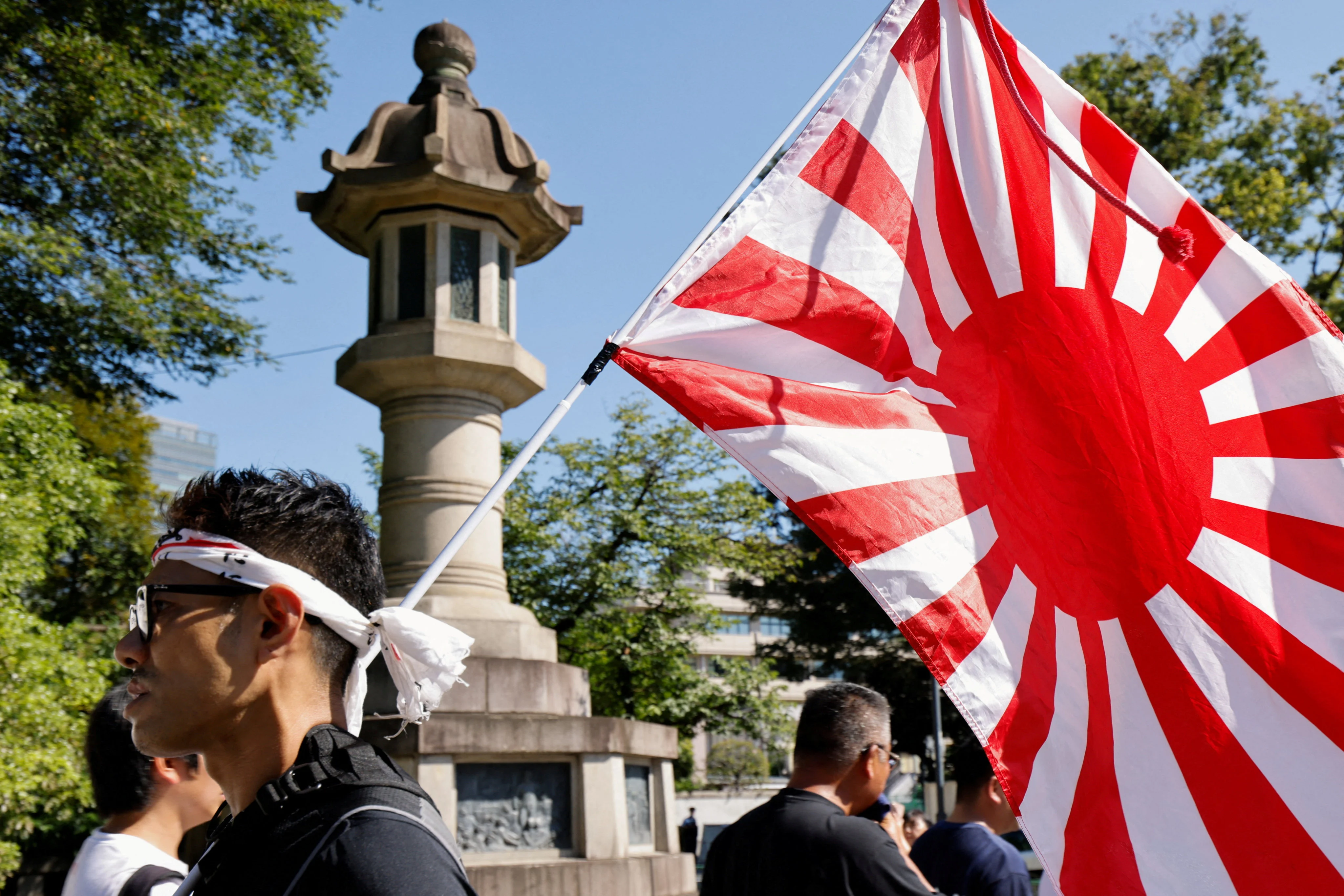By Julian Ryall
Copyright scmp

A leading contender to become Japan’s next prime minister has sparked backlash from conservatives after suggesting the removal of Class A war criminals from the controversial Yasukuni Shrine, a “bold” idea that analysts say could help repair strained ties with neighbouring countries over Tokyo’s wartime history.
Yoshimasa Hayashi, the chief cabinet secretary and a front-runner in the ruling Liberal Democratic Party leadership race on Saturday, proposed separating the “souls” of 14 men convicted of the most serious war crimes. Doing so would allow Japanese politicians and the emperor to pay their respects at the shrine without drawing international condemnation, he argued.
While the proposal has enraged conservatives, analysts believe it signals a rare attempt by a top Japanese politician at regional reconciliation.
“Since 1978, Yasukuni has been ground zero for an unrepentant view about Japan’s wartime rampage through Asia due to the enshrinement of Class A war criminals,” said Jeff Kingston, director of Asian Studies at Temple University in Tokyo.
Noting that even the imperial household had avoided visits to the shrine, he told This Week in Asia: “Associating this sacred site with such toxic history ensures it remains controversial within Japan and with China and South Korea.”
Hayashi’s suggestion before the LDP leadership battle is “a bold gesture of reconciliation to victims of Japanese imperialism”, according to Kingston. “Japanese reactionaries are outraged because they prefer a whitewashed version of Japan’s shared history with Asia.”
During an interview aired on Fuji TV on Sunday, Hayashi said his proposal would separate politics from the religious environment in which “anyone, including members of the imperial family” could visit the shrine to pray “without any reservations”.
On Friday, a scathing editorial in the right-leaning Sankei Shimbun condemned his proposal.
“There are many reasons for opposing such a separation. First, however, doesn’t Hayashi realise that forcing such a separation would tear the Japanese public apart?” the editorial said.
All those convicted of war crimes – a total of 1,066, including the 14 sentenced to death for starting the war – were later recognised by Japanese law as eligible for the same benefits as other military personnel, according to the editorial. As such, they were not treated as war criminals and were therefore eligible to be enshrined at Yasukuni, it added.
“Judging the actions taken by our compatriots during the war and honouring their spirits as war dead are two different things. Hayashi’s proposal confuses the two and suggests that the spirits of these individuals should be separated from their comrades.”
The editorial also pointed out that former prime minister Yasuhiro Nakasone, who served in the Imperial Japanese Navy during the war, also floated the idea of removing Class A war criminals from Yasukuni when he was in office in the mid-1980s.
The idea was thwarted, however, when an association overseeing Japan’s Shinto facilities pointed out that separation of the enshrined “gods” was not possible according to ritual and doing so would violate the constitutional right to freedom of religion, it added.
Referring to how China, in particular, had criticised the enshrinement of Class A war criminals at Yasukuni, the editorial concluded: “How Japan commemorates its war dead is a domestic issue. Dividing the enshrined souls to accommodate foreign interlopers is out of the question.”
Several readers of the Yomiuri newspaper have also posted messages on its website to oppose Hayashi’s proposal.
One user wrote: “Visiting and paying respects to the deceased [at Yasukuni] is not a glorification of war, rather, it is a ‘practice’ that recognises the horrors of war and shows a resolve to never repeat it. It is important to understand this cultural and religious background and avoid misunderstandings.”
Toshimitsu Shigemura, a professor of politics and international relations at Tokyo’s Waseda University, said the objection by the country’s conservatives against the proposal was “not logical” and “based entirely upon emotion”.
On the contrary, if the proposal were carried out, it could lead to Japan mending fences to an extent with its regional neighbours over its wartime history, Shigemura said.
“I believe that if the war criminals were removed from Yasukuni, it is very possible that China will stop much of its criticism. And if China stops, then South Korea will have to stop as well.”
Yasukuni was founded in 1869 to commemorate all those who have died in the service of Japan and stores the names of more than 2.46 million individuals. It gained notoriety in 1978 when the names of Japanese war criminals were enshrined at Yasukuni. No emperor has visited the shrine since 1975.
The shrine also holds the names of around 20,000 people from the Korean peninsula and some 25,000 from Taiwan – both of which were ruled by Tokyo at the time and whose residents were considered Japanese nationals – who died fighting for Japan.